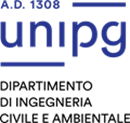| Course name |
Sustainable materials and processes engineering |
|---|
| Study-unit Code |
A002469 |
|---|
| Curriculum |
Materiali per l'aerospazio |
|---|
| Lecturer |
Helios Vocca |
|---|
| Lecturers |
|
|---|
| Hours |
|
|---|
| CFU |
5 |
|---|
| Course Regulation |
Coorte 2023 |
|---|
| Supplied |
2024/25 |
|---|
| Learning activities |
Caratterizzante |
|---|
| Area |
Chimica e fisica della materia |
|---|
| Sector |
FIS/01 |
|---|
| Type of study-unit |
Opzionale (Optional) |
|---|
| Type of learning activities |
Attività formativa monodisciplinare |
|---|
| Language of instruction |
Italian
|
|---|
| Contents |
In the course, starting from the physical principles that link fluctuations to dissipations, we will analyze the properties of materials and techniques to minimize dissipations and fluctuations to create devices with extremely high sensitivity. Fundamental noises, such as thermal and quantum noise, and the techniques used to manage them will be described with particular attention. These noises are in fact the physical limit of any system, from the measuring devices to the CPUs, which must be taken into account when working at extreme sensitivities.
|
|---|
| Reference texts |
P. Saulson, Fundamentals of Interferometric Detection of Gravitational waves, World Scientific 1994
|
|---|
| Educational objectives |
To provide students with the basics of principles of noise in measurements and how to minimize them for higher-sensitivity applications.
|
|---|
| Prerequisites |
Knowledge of the fundamentals of basic physics.
|
|---|
| Teaching methods |
Lectures will be made by using slides and movies. Some lessons could be dedicated to revision and depth of issues also proposed by the students and that could involve students themselves.
|
|---|
| Other information |
|
|---|
| Learning verification modality |
The exam consists in an oral examination. The examinations are designed at evaluating the student's knowledge and understanding of the topics presented during the course.
|
|---|
| Extended program |
|
|---|
| Obiettivi Agenda 2030 per lo sviluppo sostenibile |
|
|---|


